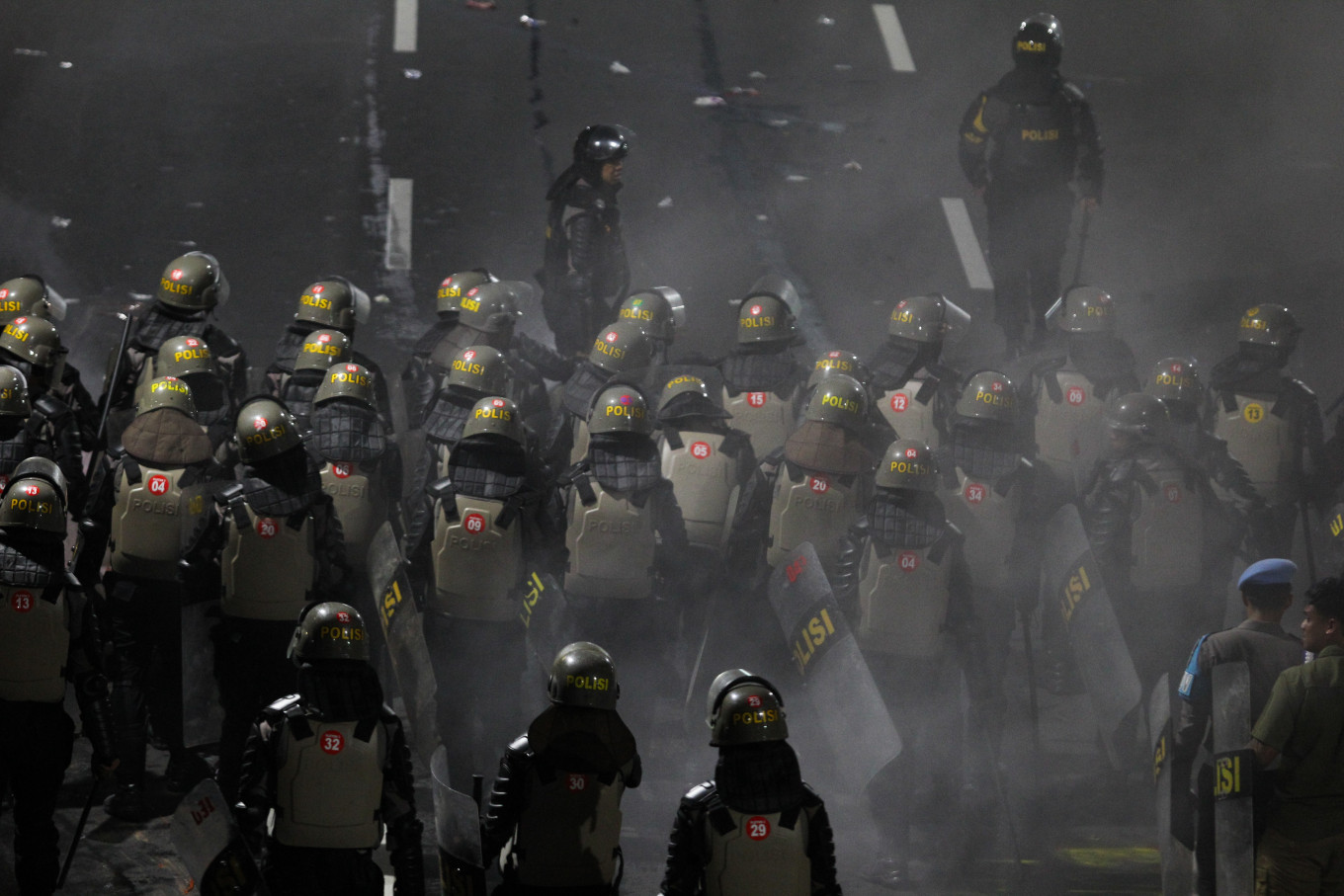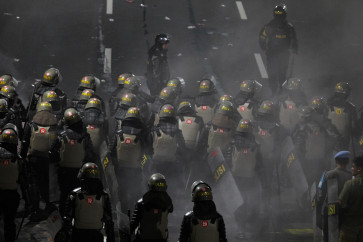Popular Reads
Top Results
Can't find what you're looking for?
View all search resultsPopular Reads
Top Results
Can't find what you're looking for?
View all search resultsThe year of resistance: What protest movements really tell us
Unlike the blunt authoritarianism of the past, what Indonesia faces today is soft authoritarianism, where repression wears the mask of legalism and state power is quietly weaponized.
Change text size
Gift Premium Articles
to Anyone
T
he recent wave of civil resistance and public protest that swept across Indonesia from 2024 into early 2025 reflects a deeper reckoning with the direction of the country’s political development.
At its core, this discontent speaks volumes of a growing sense of disillusionment with a system that is drifting away from its consensus-based foundations, once grounded in deliberation, pluralism and civic freedom, toward a rigid, command-oriented model defined by hierarchy, centralization and coercive authority.
This shift has been compounded by institutional crises, most notably the Constitutional Court’s ruling in 2023 that changed the age limits for presidential and vice presidential candidates only to pave the way for Gibran Rakabuming Raka, the eldest son of then-president Joko “Jokowi” Widodo, to contest the 2024 race.
Widely criticized as politically motivated, the ruling has caused serious damage to the legal-political order and has contributed to the collapse of political decorum in the country. When the court ignored formal-legal procedures and trampled on foundational norms of constitutional governance, it not only subverted due process but also hollowed out the ethical scaffolding of the democratic project.
The mass protests in August 2024, dubbed the Indonesian democratic emergency, against the political elites’ attempt to overrule the Constitutional Court’s decision to abolish the threshold to run for regional head, represented a concerted effort by civil society to reclaim a crumbling decorum.
Yet this groundswell of resistance quickly ran up against deeper structural constraints. The erosion of political decorum has reopened the gates to authoritarian impulses that had long been dormant since the reformasi movement of 1998.
Unlike the blunt authoritarianism of the past, what Indonesia faces today is a more insidious form: soft authoritarianism, where repression wears the mask of legalism and state power is quietly weaponized. As Steven Levitsky and Lucan A. Way observe, today’s authoritarian regimes are often dressed in constitutional clothing.


















